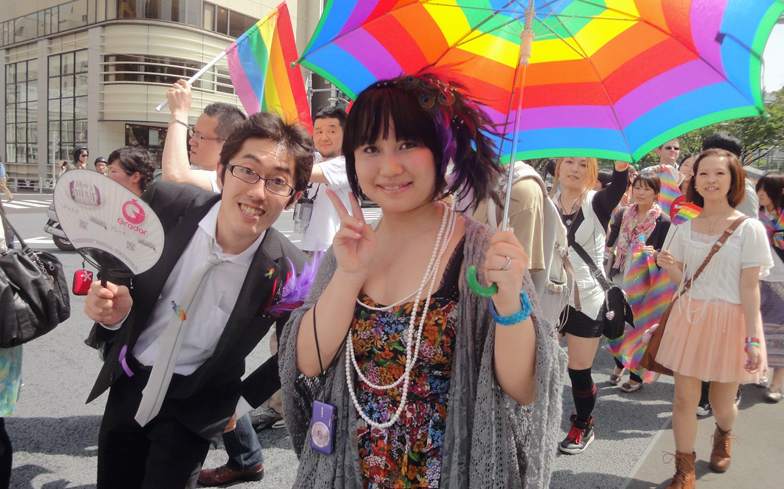
Japan’s ‘partnership system’ continues to spread across the country.
Kyoto has become the latest Japanese city to bring in a ‘partnership system’ that recognises same-sex couples.
The ‘partnership system’ in Japan stops short of allowing same-sex marriage, but affords same-sex couples certain benefits given to married couples, like moving into public housing as a couple, hospital visitation rights and even certain employment benefits.
The system was introduced in a small ceremony on Tuesday (1 September), and the Mainichi Times reports that the city is the first in the Kyoto Prefecture to introduce the measures.
In the small ceremony that was held, Kyoto mayor, Daisaku Kadokawa issued the certificates to five same-sex couples. Some of the couples present said: “Finally our existence has been recognised” with another one saying “It was our dream to become a family together. I feel like now that wish has been granted.”
Kadokawa added: “We will continue working hard to recognise diversity in sexuality and various forms of families.”
Kimiko Tsuboi, a 36-year-old resident who received one of the certificates, said she was motivated to get one because of the current coronavirus pandemic. She said that she and her partner were worried that they wouldn’t be able to visit one another if one of them was hospitalised with the illness.
The municipal government said that by the end of 1 September, 20 same-sex couples in the region had applied to get the certificate.
Homosexuality is seen as a taboo topic in Japan, and same-sex couples still face discrimination in the country.
One of the people who got one of the ‘partnership system’ certificates, 49-year-old Yoshihide Hamamoto, said that when they went looking for a house with their partner, one real estate company refused to show them any properties because the “owner was against it.”
However, things are improving, with many cities and prefectures in the country now offering the ‘partnership system’ certificates. Other major cities, like Tokyo and Osaka, have banned anti-LGBTQ+ discrimination.
And earlier this year, the Mie Prefecture became the first area in the whole of Japan to make it illegal to out someone.
The move came following the way South Korea handled its second wave of coronavirus cases, which may have been spread through the country’s gay bars. The country was criticised in the way it wanted patients to come forward, as it would’ve outed their sexuality in a country that is fairly conservative-minded when it comes to LGBTQ+ rights.
Outing can have horrific consequences for LGBTQ+ people, with some taking their own lives after getting outed. Yuichi Kamiya, the executive director of the LGBT Federation (Tokyo) said: “Outing is a life-threatening harassment. Administrative regulations should be expanded.”
Related: Poll finds that one in ten people in Japan identify as LGBTQ+



